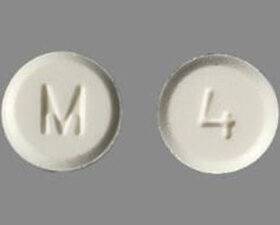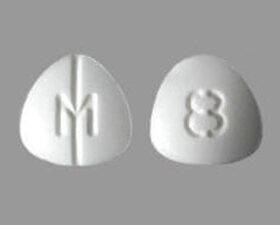- Your cart is empty
- Continue Shopping

Shop
Buy Hydromorphone Online
Introduction To Hydromorphone
Hydromorphone is a potent pain-relief medication utilized for managing intense pain that is unresponsive to other non-opioid pain relievers. It is a generic drug also marketed under the brand name Dilaudid. Hydromorphone is offered in tablet and oral solution forms. Being an opioid, it functions by modifying how the central nervous system (CNS) and the brain perceive pain. You have the option to purchase Hydromorphone online from buyanxietypills.com to alleviate your pain.
Nevertheless, prolonged use of Hydromorphone can lead to the development of a habit, resulting in physical or psychological dependence. As an opioid agonist, Hydromorphone attaches to various opioid receptors. Its pain-relieving properties are achieved by affecting the mu-opioid receptors in the body. Hydromorphone also acts centrally at the medulla level, suppressing cough reflexes and reducing respiratory drive.
When buying Hydromorphone online, what crucial details should I be aware of?
- Like oxycodone, hydrocodone, morphine, tapentadol, and methadone, hydromorphone is a drug that has a significant potential for abuse or misuse.
- Addiction, misuse, and illegal diversion are all possible with hydromorphone tablets and hydromorphone oral solutions.
- Drowsiness, narrowed pupils, mood changes, slower breathing, and loss of awareness are a few indicators of hydromorphone addiction. Extreme addiction, which is marked by risky behaviors, cravings, and difficulties at work, school, home, and in relationships, can arise under certain situations.
- A person growing tolerant to hydromorphone would require higher and more frequent dosages to get the intended effect.
Warnings and precautions
Patients suffering from acute or chronic pulmonary disease should be cautious when using Hydromorphone tablets or oral solutions. Particularly, individuals with severe chronic obstructive pulmonary disease, reduced respiratory reserve, hypercapnia, or hypoxia are more prone to experiencing decreased respiratory drive. These patients must adhere closely to their physician’s instructions when taking Hydromorphone.
Some medications may interact with Hydromorphone, leading to a potentially severe condition known as serotonin syndrome. It is important to inform your doctor if you are also using drugs for treating depression, mental disorders, severe infections, Parkinson’s disease, migraines, or to prevent nausea and vomiting. Before altering the way you take your medications, it is advisable to consult your doctor.
To ensure the safety of using Hydromorphone, it is important to inform your doctor if you have:
- breathing that is noisy, gasping, shallow, or pauses while you’re sleeping;
- a history of seizures, brain tumors, or head injuries;
- a history of drug or alcohol addiction; mental illness;
- issues with urine;
- illness of the kidneys or liver;
- Sulfite allergy;
- pancreatitis, thyroid, or gallbladder issues;
- Addison’s disease or other abnormalities of the adrenal glands.
How should Hydromorphone be used?
As prescribed by your physician, take Hydromorphone (Dilaudid) exactly as instructed. Breathing problems caused by hydromorphone are more likely to occur when you first start using the medication or adjust your dosage. Use of hydromorphone should not be increased or prolonged beyond recommended dosages. Notify your physician if the effects of Hydromorphone on your pain seem to diminish. Even at consistent levels, hydromorphone has the potential to become addictive. Follow your doctor’s instructions exactly when taking this medication.
Use a measuring spoon or specialized dose-medicine cup to measure the Hydromorphone liquid medication rather than a standard tablespoon. You can request one from your pharmacist if you don’t already own a dose-measuring device.
Never save extra Hydromorphone pills or liquid. Find out from your pharmacist where to find a program for the disposal of unused medications. If there isn’t a take-back program of that kind, flush any leftover liquid or tablet down the toilet. To reduce the risk of an unintentional overdose leading to death, flushing medications should be disposed of. This information is only applicable to a limited range of medications. Combining forces with the manufacturer, the Food and Drug Administration has concluded that this method of disposal is the safest and most suited for human health.
When using Hydromorphone, what should I not do?
Avoid consuming alcohol. Combining alcohol and hydromorphone can have deadly consequences. Hydromorphone may cause cognitive or behavioral impairments. Before understanding how Hydromorphone affects you, refrain from using large machines, sharp objects, or driving. Excessive fatigue or vertigo may result in falls or other mishaps.
Information on Hydromorphone dosage
- Hydromorphone (Dilaudid) comes in tablet and liquid form. The tablet has an 8-milligram strength; the liquid has a 5-milligram strength per 5 milliliters of solution; and the injection comes in a sterile solution with 1, 2, or 4 milligrams of hydromorphone hydrochloride combined with 0.2% sodium citrate and 0.2% citric acid solution.
- The recommended starting dosage for tablets is typically 2 to 4 milligrams every 4 to 6 hours, while the recommended starting dosage for liquids is 2.5 milligrams (2.5 milliliters) every 3 to 6 hours. The dosage can be adjusted based on the patient’s response and the doctor’s recommendation.
- Start with a starting dose of 1 to 2 milligrams of hydromorphone injection subcutaneously or intramuscularly every 4 to 6 hours, depending on the severity of discomfort.
- Moreover, a patient’s respiration must be closely watched when administering a hydromorphone injection gradually over two to three minutes.
Hydromorphone side effects
- Hydromorphone frequently causes the following adverse effects: flushing, itching, diarrhea, stomach pain, nausea, lightheadedness, vomiting, dry mouth, dizziness, and sleepiness.
- Seizures (convulsions), difficulty breathing, elevated body temperature, disorientation, sluggish heartbeat, chilly and clammy skin, taut muscles, impaired gait, and shallow, feeble, or slow breathing are among the severe side effects of hydromorphone.



